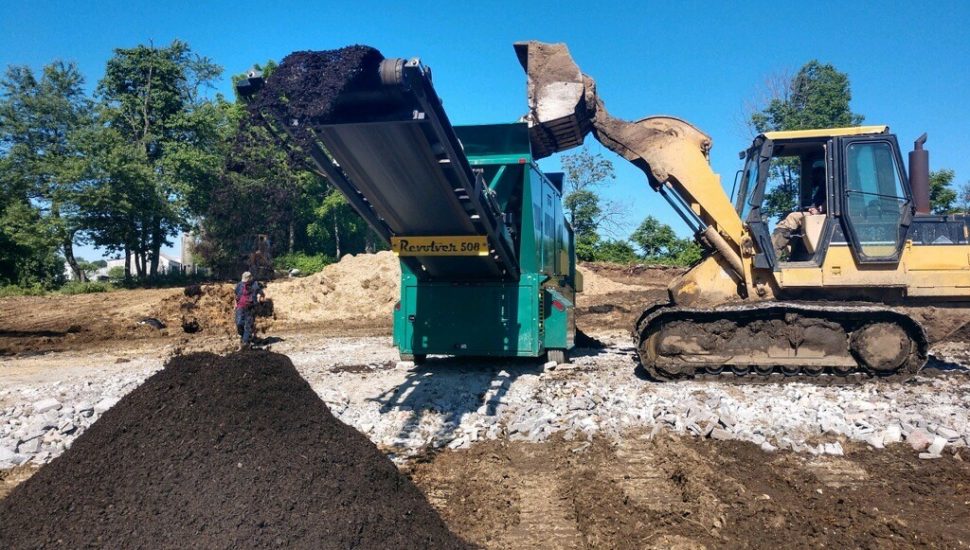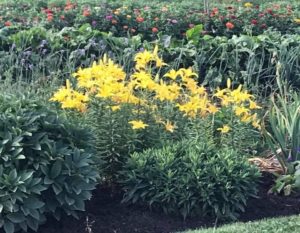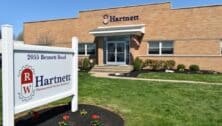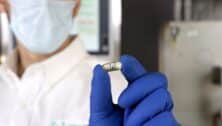Veterinarian’s Unique Composting Service in Honey Brook Benefits Local Farmers and the Environment

“It’s not the most glamorous business, but it’s something that’s really necessary to help the agricultural community around us,” said Dr. James Holt.
The veterinarian and entrepreneur was referring to his large animal composting venture, a unique and environmentally friendly business that diverts tons of material from landfills and creates a useful product used by local farmers in Chester County.
A 1991 graduate of the University of Pennsylvania School of Veterinary Medicine, Holt is the owner of Brandywine Veterinary Services, and as such, performs health evaluations and diagnostics on horses and cattle. He is also the veterinarian for the New Holland Sales Stables – the largest livestock auction east of the Mississippi River – where one of his focuses is on equine welfare.
 The idea for large animal composting, however, came as a result of the outbreak of Mad Cow Disease, a fatal neurological disease in cattle. Initially identified in the United Kingdom, the disease has been reported in the U.S. and several other countries.
The idea for large animal composting, however, came as a result of the outbreak of Mad Cow Disease, a fatal neurological disease in cattle. Initially identified in the United Kingdom, the disease has been reported in the U.S. and several other countries.
“There was some concern of the disease transferring to humans,” said Holt, “so the government stopped allowing cattle corpses to be rendered into cosmetics and capsules for medication.”
Also, renderers were no longer allowed to buy dead animals, taking away another option by which farmers could make money from selling their diseased cattle.
“It then became much more costly to dispose of dead animals, and much of the time they ended up going into a landfill,” said Holt. “That spurred my interest in dealing with a problem that I recognized wasn’t going to go away. I really joined a composting business that was struggling.”
About a year and a half ago, Holt partnered with an Amish farmer to compost animals on 10 acres of land in Honey Brook. They named the business Compost Tech, LLC.

As opposed to burying animal corpses, which results in a very slow rate of decomposition and possible leaching of pollutants into the water supply, Holt and his partner use an above-ground, windrow technique to facilitate the process in an environmentally friendly way. Typically, a windrow is a long row of cut hay or another crop spaced across a field to dry before being harvested.
 The type of windrow at Compost Tech begins with two feet of manure on the bottom, then a layer of the dead animals, a layer of wood chips, then shredded trees, and another layer of manure. The windrow is turned every few days to allow exposure to oxygen which feeds the bacteria and micro-organisms that decompose the corpses.
The type of windrow at Compost Tech begins with two feet of manure on the bottom, then a layer of the dead animals, a layer of wood chips, then shredded trees, and another layer of manure. The windrow is turned every few days to allow exposure to oxygen which feeds the bacteria and micro-organisms that decompose the corpses.
“At our place, everything is done on the surface and the process is incredibly fast,” said Holt. “Depending on weather conditions, the animals decompose completely in about three months, including small bones. At the end, a machine sifts out any large bones, and what remains is our compost – a certified organic product – which we then sell to farmers and produce operators.”
Compost Tech receives about 250 animal corpses each month, mostly cattle and horses, but also pigs, sheep, goats, and llamas. There is a fee for deliveries from outside the local area, but as a courtesy to the farm community in the Honey Brook area, the business takes in local animals for free.
Although the business receives animals from as far away as Allentown, Holt is happy that his business mainly benefits local farmers who use his compost and who can dispose of their dead animals at no cost.
“We are environmentally friendly, and our finished product is really healthy for plants,” he said. “For the most part, everything is going back to the local farms.”
For more information on Dr. Holt’s business, contact him at 610-496-1620.
[uam_ad id=”80503″]
.
[uam_ad id=”80502″]
Connect With Your Community
Subscribe to stay informed!
"*" indicates required fields

























![95000-1023_ACJ_BannerAd[1]](https://vista.today/wp-content/uploads/2023/03/95000-1023_ACJ_BannerAd1.jpg)






















